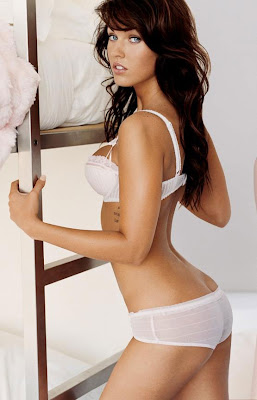
It’s amazing how much society shapes us into these figures. I know that I do it all the time. I will watch a movie where Clint Eastwood, Russell Crowe, or Brad Pitt walks around in their own ways. All of them showing off their toughness in various ways and I sit there and wonder what makes them different from me. Why can’t I be like them? I change my personality just a little bit more after watch the next blockbuster movie about a “man”, who gets the ladies, has the friends, and beats the bad guys so that I may be like them one day soon. But instead of asking myself what I can do to be like these men in the movies, I should be focusing on what makes me the man that I am and be happy with my looks and my personality. It seems that it is all too often that we stereotype and write people off when they don’t fit in with the way society perceives the right way to be a man or women. Who created these standards to begin with? When did women start wearing skirts that reveal more than my underwear does? When did mean start spending more time at the gym than they did looking in text books? Is this all thanks to Arnold Schwarzenegger and Brad Pitt, or is there more to it? “These are really caricatures. These images have been drilled into us through popular culture and education over the years” (Feinberg,3). This author hit the nail on the head, but over what years? When are we most vulnerable to accept these “norms”, and cave into the idea that women are to be 85 pounds and have long slender legs and men are to be these jacked stocky guys with a 24-pack (abs, not alcohol)?
Looking back into my childhood I never really noticed at any point watching a Disney movie wear the prince or main male character showed off his boulder shoulders and biceps that are larger than his head. I never noticed that they were incredibly “manly”, so at what point does it snap into a boys mind that men are big, strong, assertive creatures? Also, I think the biggest question is why do we care to judge when a man or woman does not fit the typical definition of what they are? Why must we show no mercy to those who view life a little more different than we do? We say that same-sex marriage is a terrible thing because it’s against religion, but why do we care? By allowing these men and women to get married, it doesn’t condemn us to eternal damnation. It does not affect us in any way at all. But we still do not allow it. “Bigotry exacts its toll in flesh and blood. And left unchecked and unchallenged, prejudices create a poisonous climate for us all” (Feinberg,3). Feinberg was never more educational than when she wrote this. Looking back at her reading, you cannot even begin to believe what had happened at that hospital. Why does this doctor care? What difference does it make to treat someone like this? People like this are the reason why everyone is picketing and fighting eachother.

